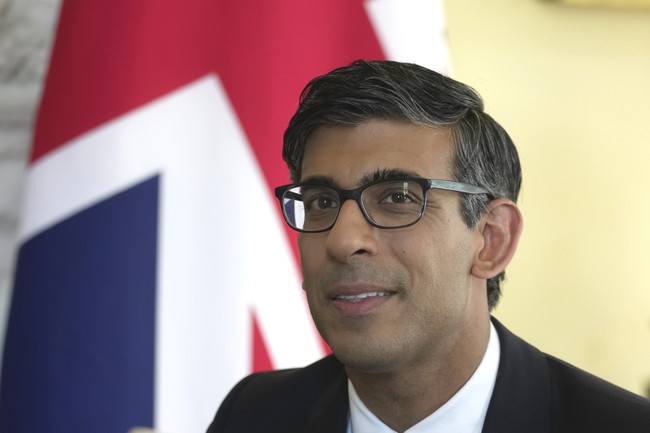
British Prime Minister Rishi Sunak surprised the media, the opposition Labour Party, and members of his own Conservative Party by calling for an early election.
The date Sunak chose for the election is July 4 — not exactly an auspicious day in British history.
Most observers were expecting a new election to be called for the fall. But some analysts believe that for Sunak, this is as good as it’s going to get as far as the economy goes.
Bronwen Maddox, director of Chatham House think tank, told CNBC “I have to deduce [Sunak] thinks this is as good as it gets … you can begin to hear signs of the economy doing better, house prices going up, less worry about energy bills, but I’m surprised he didn’t give it longer to feed through.”
“I think it is going to be an election that we are talking about for quite some time, whether it is because Labour wins a landslide and because the Conservatives are wiped out, as some commentators are expecting,” said Hannah Bunting, lecturer in quantitative British politics at the University of Exeter.
Labour Party leader Keir Starmer leads by as much as 20 points in most polls. But Labour has been in similar positions before — far ahead with weeks to go before election day only to come up short.
Indeed, recent local elections, while demonstrating Conservative Party weakness, didn’t cover Labour in glory either. Smaller parties actually performed above expectations, signaling less of a Labour landslide and more of a realignment of the parties.
Still, Sunak must be considered a long shot to keep his job.
For his part, Starmer hardly sounded like Labour leaders of the past.
After Sunak’s announcement, Starmer posted a video on X, saying it was “time for change” and warning that five more years of Tory rule would mean things getting worse, including NHS waiting times, rising food prices and sewage-hit waters. “Stop the chaos, turn the page, start to rebuild,” he said.
Later, in his televised statement, he said: “Tonight the prime minister has finally announced the next general election. A moment the country needs and has been waiting for. And where, by the force of our democracy, power returns to you. A chance to change for the better. Your future. Your community. Your country.”
Starmer claimed that Labour would offer “a politics that treads more lightly on all our lives.” Not exactly Neil Kinnock promising to transform Britain into a socialist paradise.
The markets reflected that reality. The British pound moved slightly higher in early trading.
“Contrary to some periods in the past, this time, a Labour government is not considered to be a risk scenario; in fact, investors seem sympathetic to the idea,” Roman Ziruk, senior market analyst at global financial services firm Ebury, said.
Fourteen years is a long time to be out of power. But it was their party’s economic and security left-wing radicalism and, recently, the worst kind of antisemitism that kept voters voting for the Conservatives.
Starmer has chosen to concentrate on criticizing the Conservatives rather than getting into too many specifics about his own agenda. That will probably be enough to bring him the victory Labour has waited so long for.
